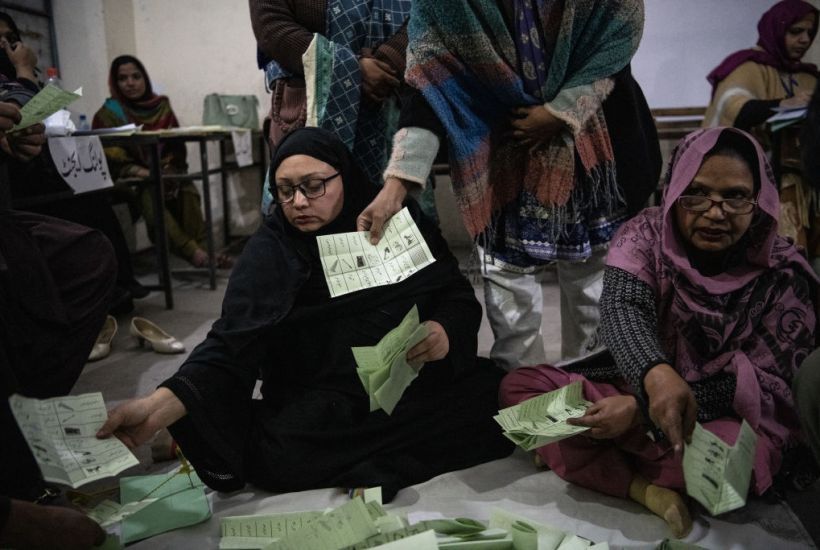A senior official in Pakistan has publicly confessed to vote-rigging in the country’s general election earlier this month. It is an unprecedented admission of malpractice that raises fresh questions about the legitimacy of the electoral process and whether the final results were manipulated by the country’s all-powerful military.
Commissioner Liaqat Ali Chattha claimed that authorities in Rawalpindi, Punjab province, changed the final voting numbers so that the candidates who were ‘losing’ the elections ‘were made to win’.
Already a subscriber? Log in
Subscribe for just $2 a week
Try a month of The Spectator Australia absolutely free and without commitment. Not only that but – if you choose to continue – you’ll pay just $2 a week for your first year.
- Unlimited access to spectator.com.au and app
- The weekly edition on the Spectator Australia app
- Spectator podcasts and newsletters
- Full access to spectator.co.uk
Or




















Comments
Don't miss out
Join the conversation with other Spectator Australia readers. Subscribe to leave a comment.
SUBSCRIBEAlready a subscriber? Log in